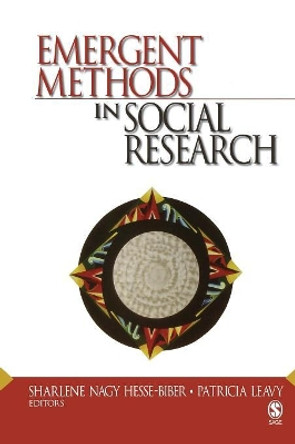New technologies are breaking the boundaries of how social researchers practice their craft, and it has become clear these changes are dramatically altering research design from the way data is collected to what is considered data. Bringing together all the emerging social science research technologies in one place, The Handbook of Emergent Technologies in Social Research offers comprehensive and up-to-date thinking on emerging technologies and addresses their impact on research methods, and in turn how new technologies lead to new research questions and areas of inquiry. The Handbook is organized into five sections, covering internet technologies, emergent data-collection methods, audio/visual, mobile, and geospatial technologies, and technology's impact on studying social life in natural settings, all after taking a look at emergent technologies from a broad, social-research context. Many of the twenty-nine chapters provide a commentary on and summary of specific technologies, like global surveys on the internet, mobile phones, data mining, and remote sensing, with a central focus on the most effective ways to use them. Others discuss the ethical and moral implications, especially issues of privacy and confidentiality, and collaborations across disciplines and outside the academy. The Handbook of Emergent Technologies in Social Research is indispensable for any social researcher looking to incorporate emerging technologies into their methods and practice.
About the AuthorSharlene Nagy Hesse-Biber is Professor of Sociology at Boston College. She is the author or editor of numerous books, including: The Cult of Thinness 2E (OUP 2006), Working Women in America: Split Dreams 2E (OUP 2004), Feminist Perspectives in Social Research (OUP 2004), Approaches to Qualitative Research (OUP 2004), and Feminist Approaches to Theory and Methodology (OUP 1999).
ReviewsThis is a path-breaking examination of the emerging social media technologies and their impact on critical qualitative methodologies. Sharlene Hesse-Biber presents a comprehensive framework for interpreting and using these new discourses. The chapters are clearly written, and very accessible to students. This book lays the foundation for the generation of scholars who want to take these emergent technologies to the next level. * Norman K. Denzin, College of Communications Scholar, University of Illinois at Urbana-Champaign *
Book InformationISBN 9780195373592
Author Sharlene Nagy Hesse-BiberFormat Hardback
Page Count 720
Imprint Oxford University Press IncPublisher Oxford University Press Inc
Weight(grams) 1373g
Dimensions(mm) 256mm * 184mm * 54mm


